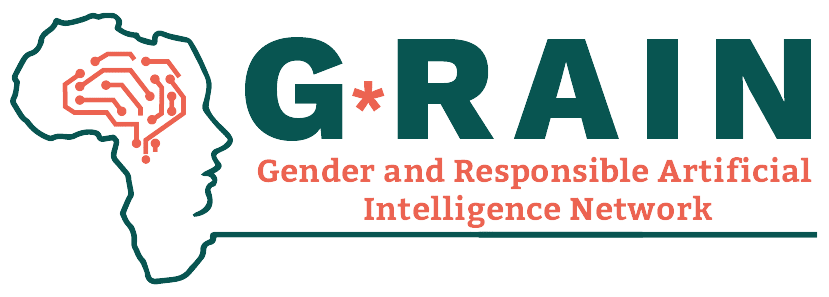It was in this spirit that an exciting workshop was held by the Gender and Responsible Artificial Intelligence Network (GRAIN). This innovative meeting brought together members of the GRAIN Consortium (CSEA, SUNDIRD AI, IPAR) as well as beneficiaries of the GRAIN project. These talented and dedicated minds are committed to exploring how a collaborative approach can influence a more just and responsible future for artificial intelligence and gender.
During this workshop, we had the opportunity to learn more about the research carried out under the GRAIN call for projects. All the beneficiaries shared their projects with expertise, offering different points of view and innovative ideas. The topics covered were diverse and captivating, including the influence of women's involvement in food systems (circular economy, agriculture, aquaculture), automatic natural language processing for African languages, and the integration of women in science and technology.
Thanks to this session, the participants were able to exchange, be inspired, acquire new knowledge and exchange ideas. This exchange session on GRAIN-funded projects was an opportunity for our beneficiaries, experts in various fields, to deliver key messages relating to their research topics.

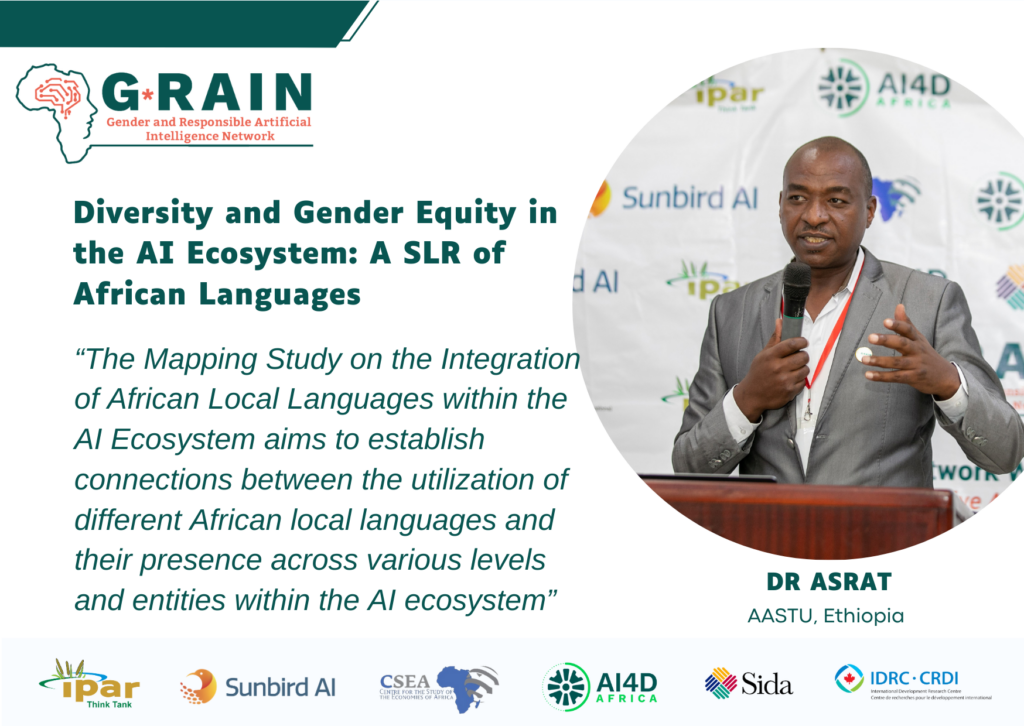
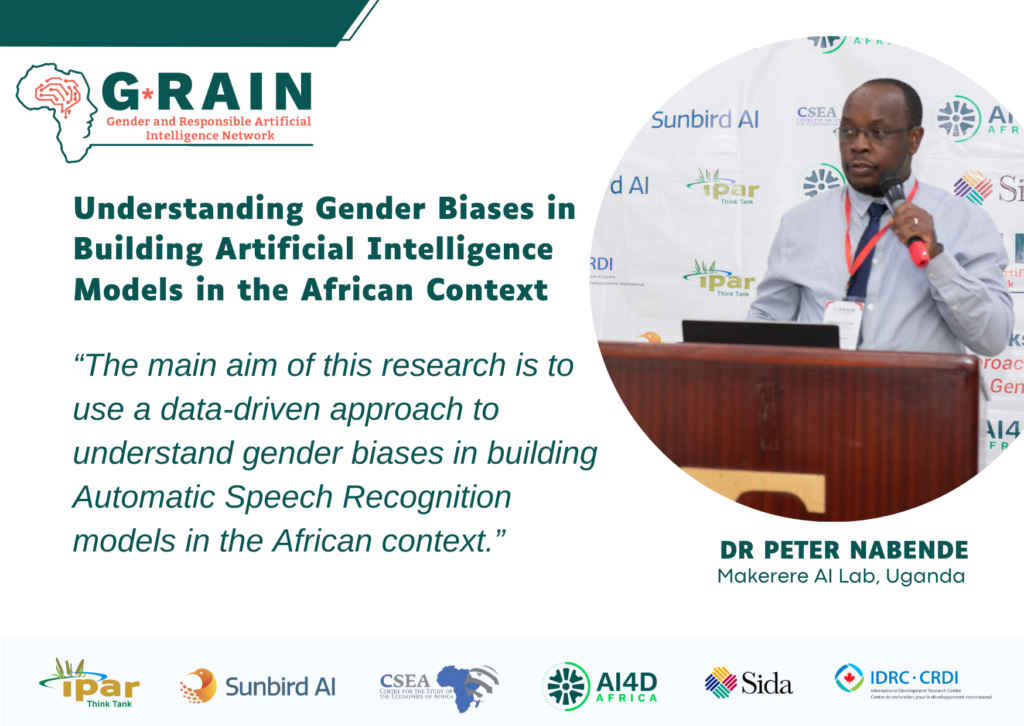
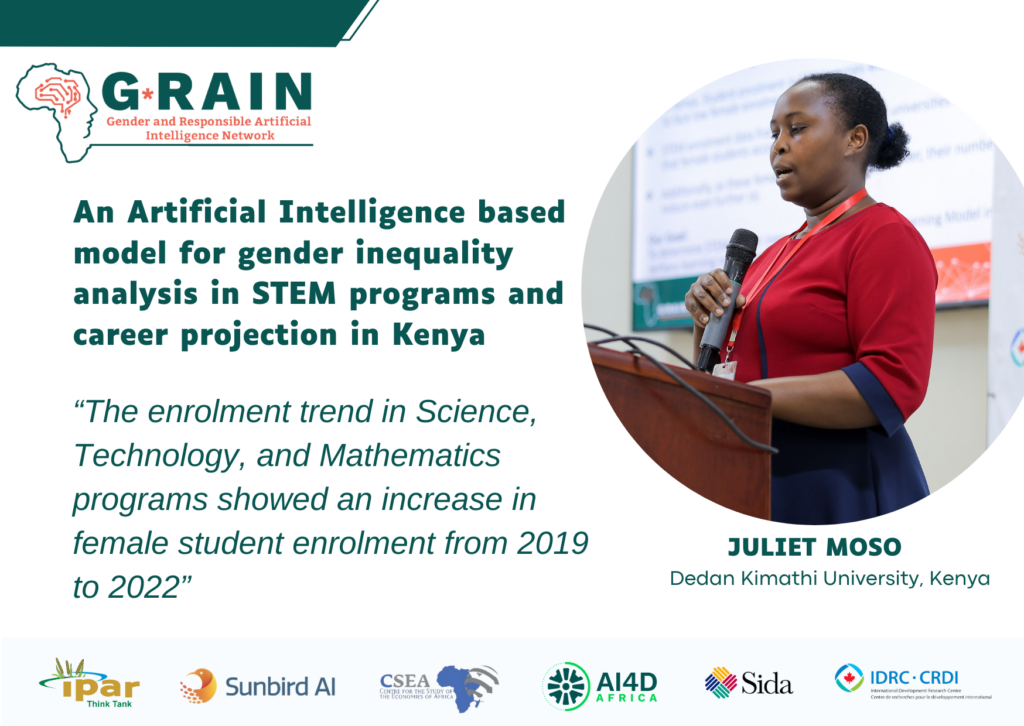
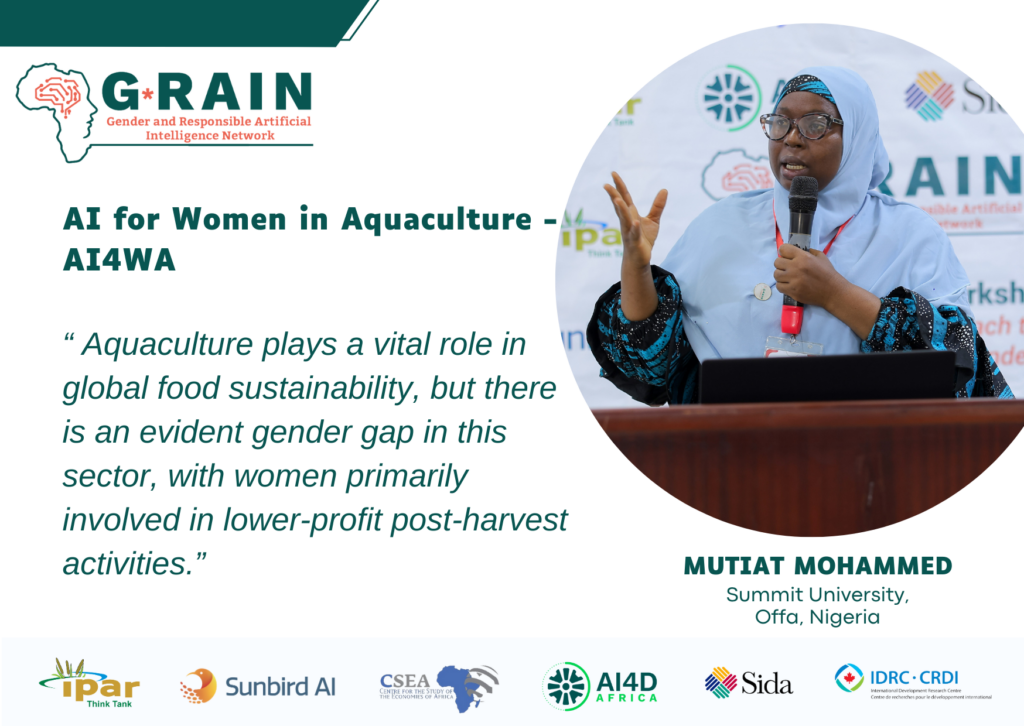
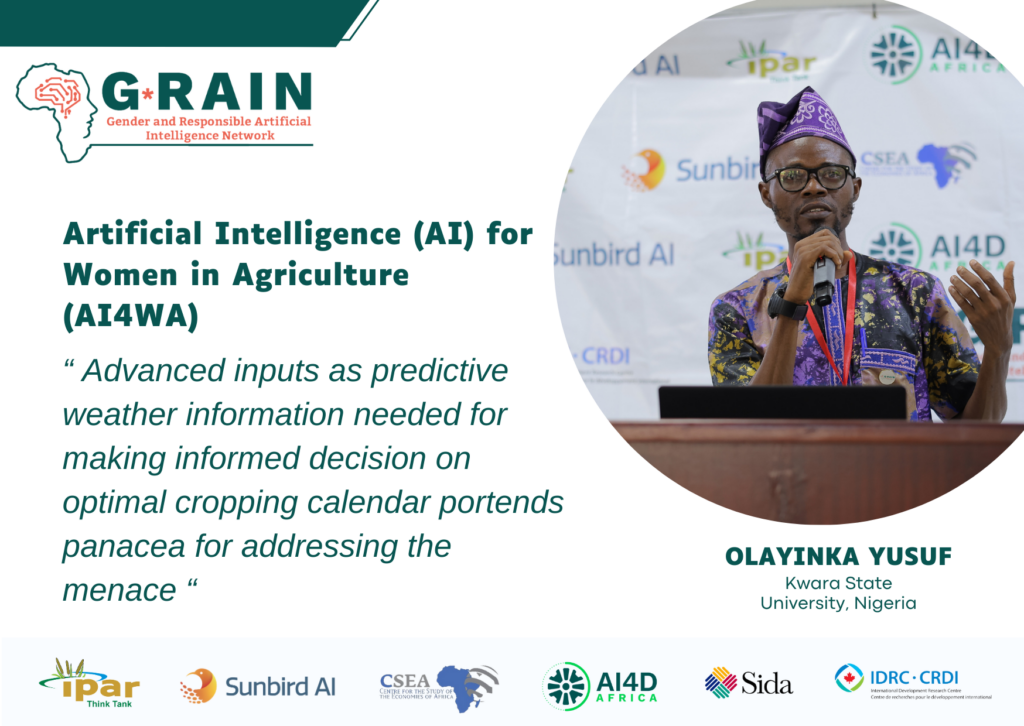
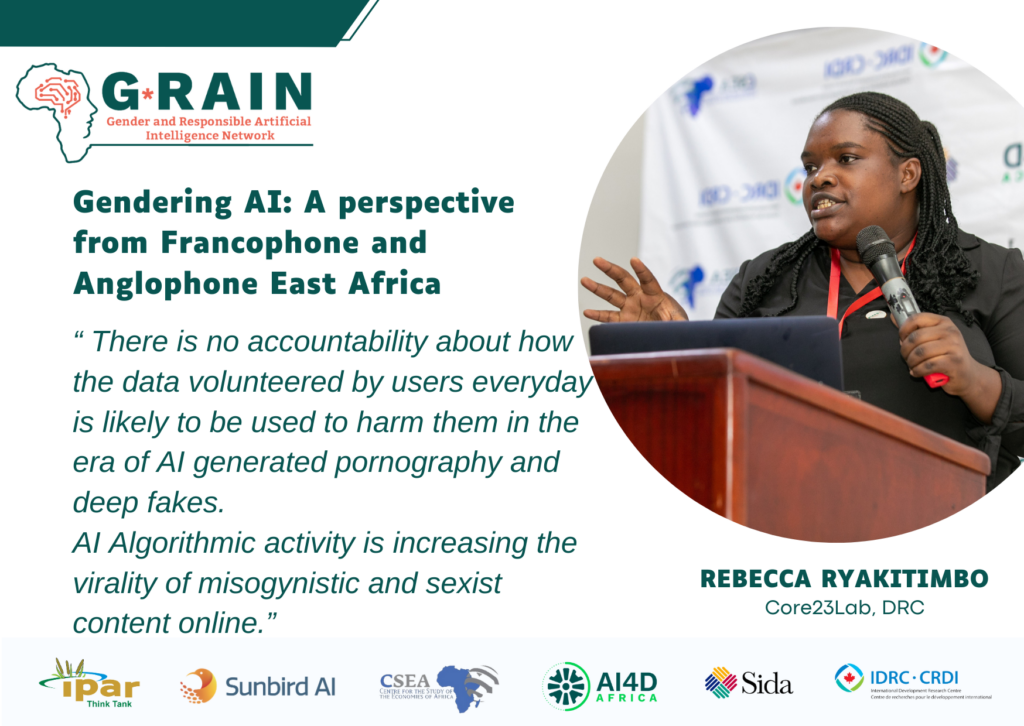

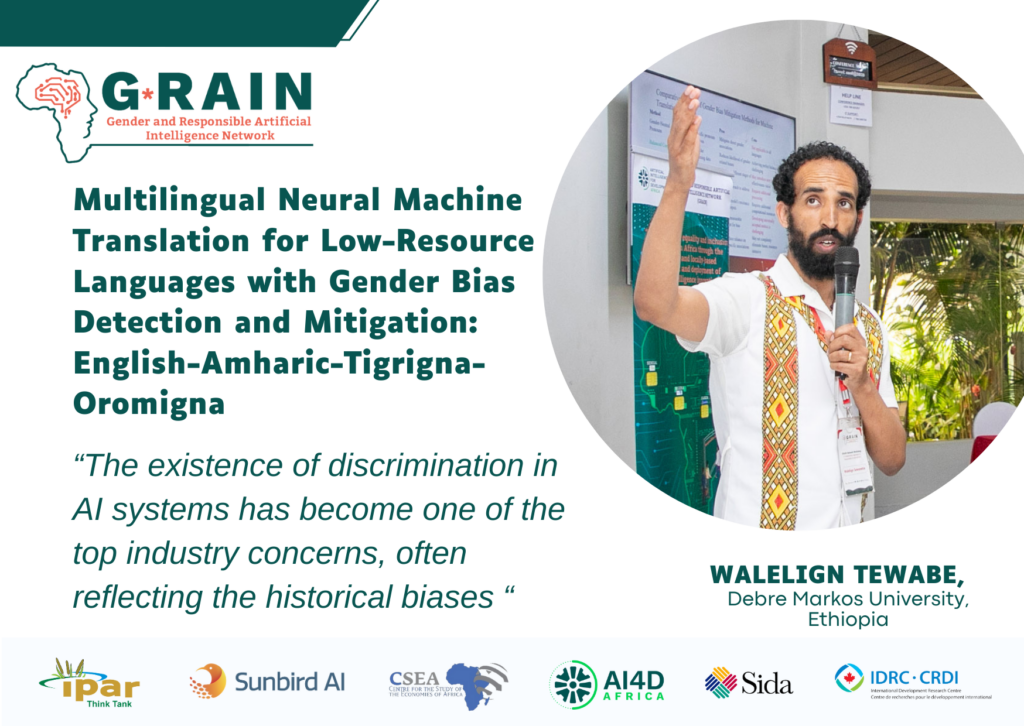
The collaborative work enabled the project leaders to exchange ideas, compare points of view and propose innovative solutions to popularise the results of their research while promoting responsible and inclusive AI that takes gender into account.
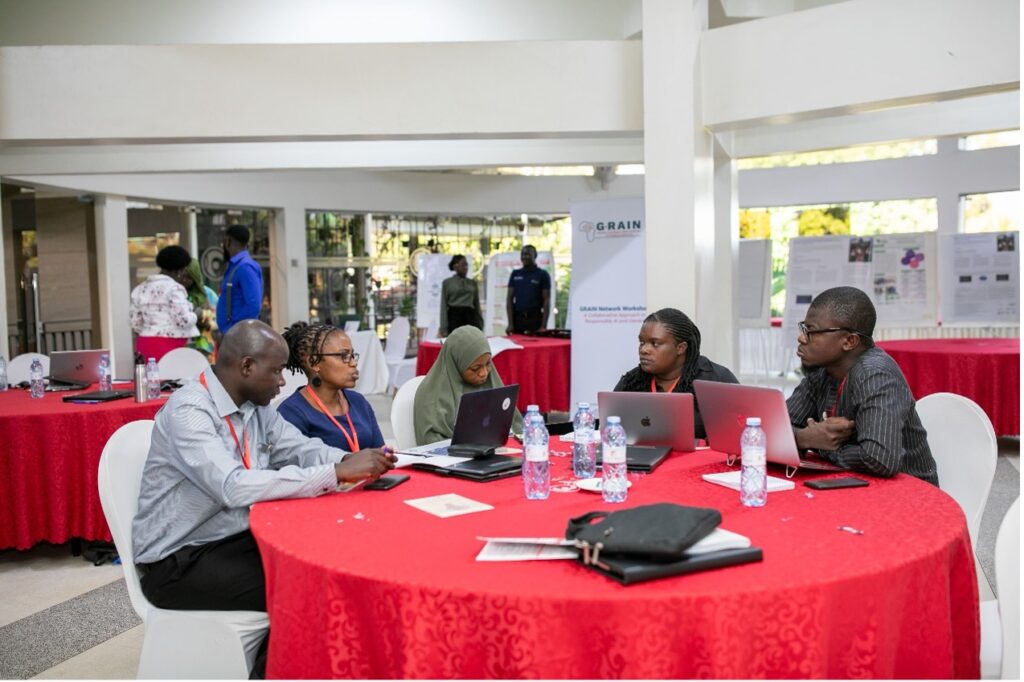

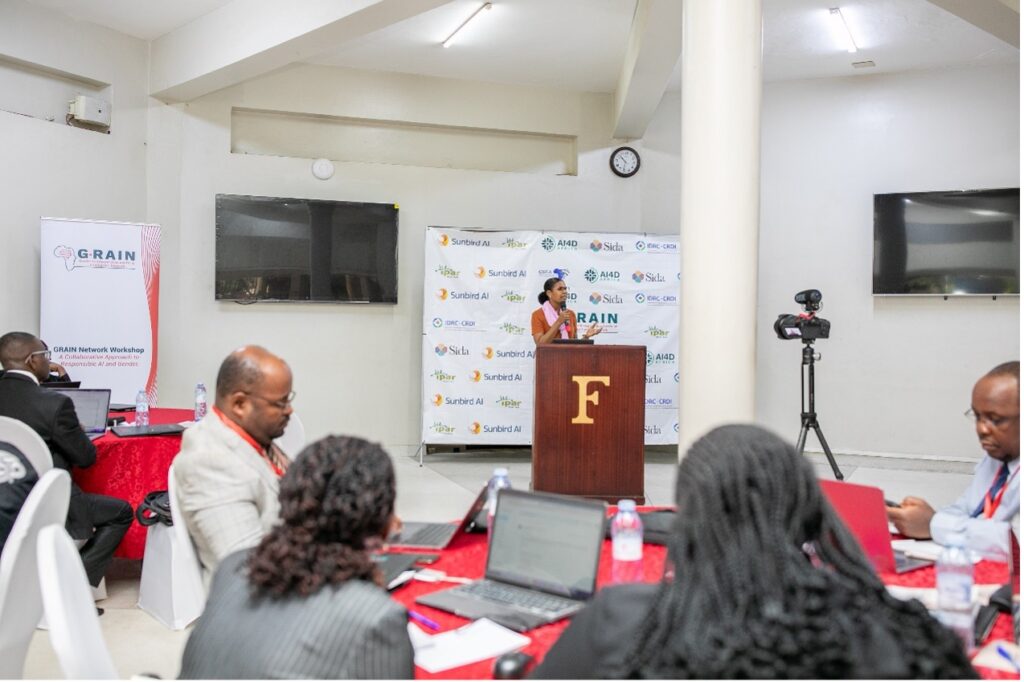
One of the highlights of the workshop was the co-construction of the Gender and Responsible Artificial Intelligence Network model. Participants worked together to develop a strategic framework to guide the network's future actions, focusing on the different key elements of the network through four components: network coordination, communication and dissemination, co-construction of the network framework, building the Grain ecosystem.
The brainstorming session on co-constructing the network framework highlighted the importance of creating subject-specific discussion groups within the network.
It was decided to start with three groups, pending expansion by geographical hub
The heads of the three (3) groups are :
Mrs Angella Ndaka, Ndaka (Kenya): Food system
Mr Adedeji Adeniran - Nigeria): Education
Mr Walelign Tewabe (Ethiopia): NLP (natural language processing)

Finally, the workshop concluded with a dynamic poster session of the various projects, giving participants the opportunity to share their achievements and inspire others to pursue similar efforts. The posters illustrated the diversity of initiatives underway and highlighted the importance of working together to create an inclusive and ethical AI ecosystem.
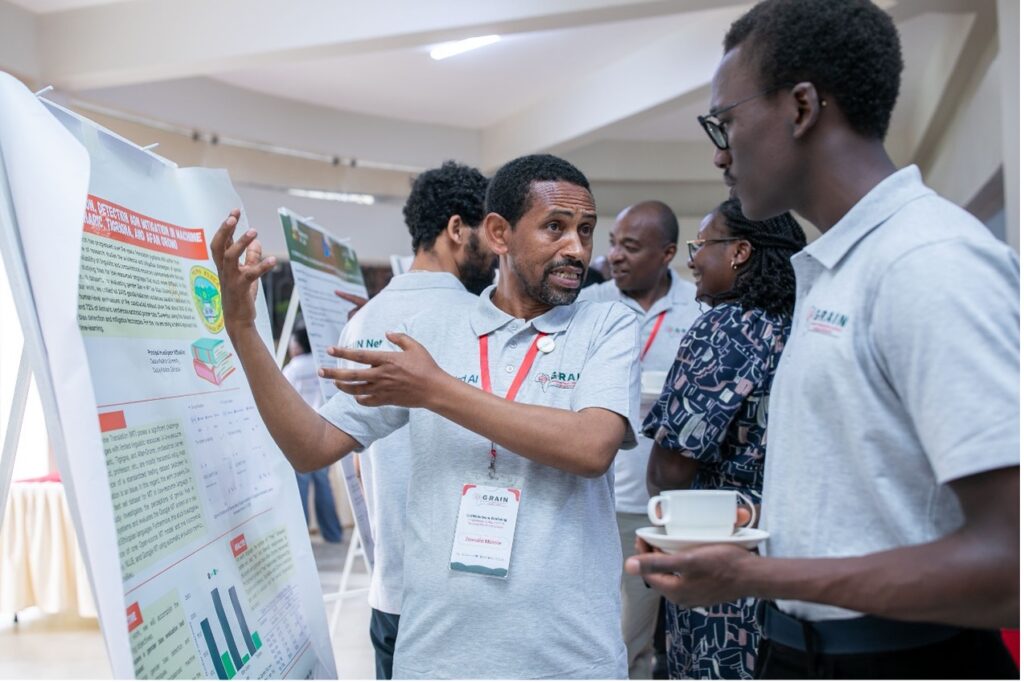
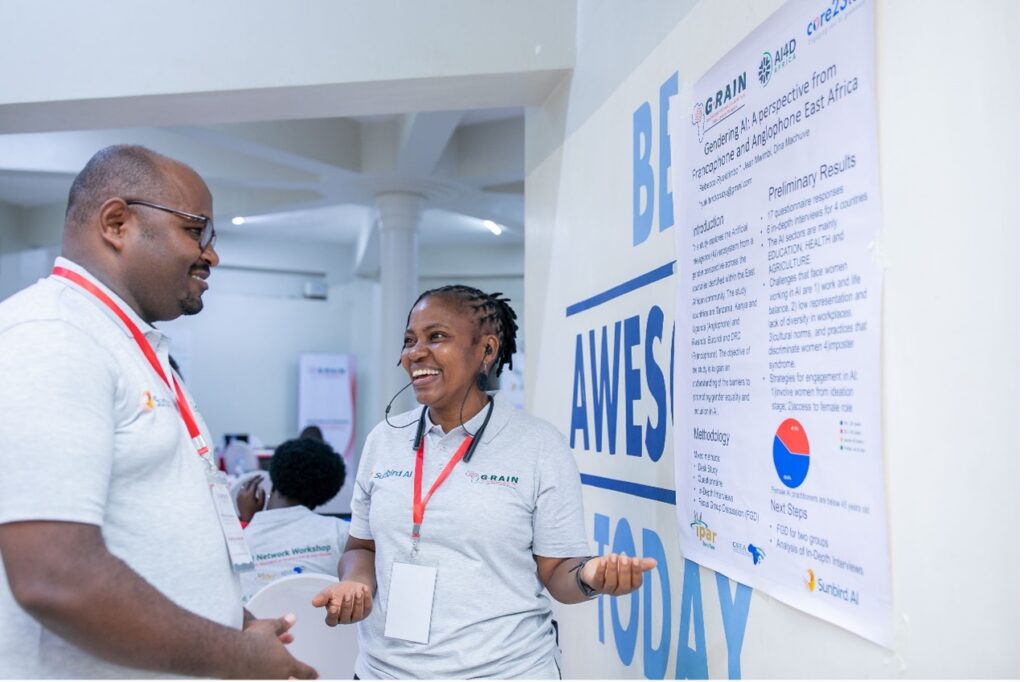
The methodology for a survey on the role of women in AI in Sub-Saharan Africa was also shared. The quantitative data that will be collected with the help of the network members will be an important contribution from GRAIN and an element of advocacy for a better integration of women in the AI sector.
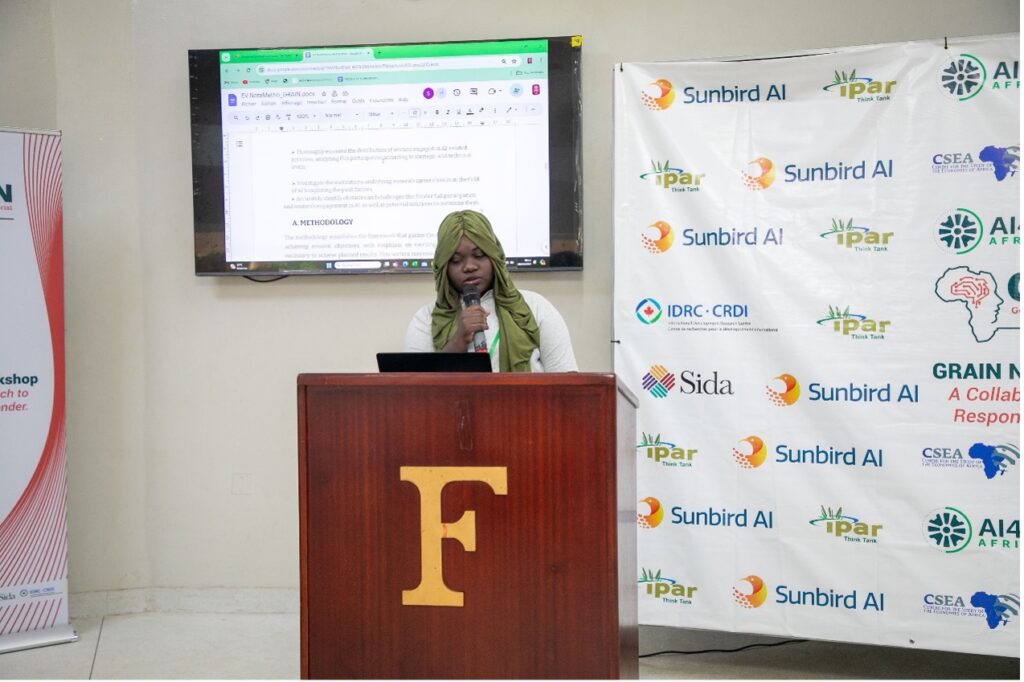
In summary, the experience of the workshop on the Gender and Responsible Artificial Intelligence Network (GRAIN) was enriching and motivating, highlighting the importance of collaboration in building a better and fairer future for all. By pooling skills and sharing knowledge, it will be possible to build a world where artificial intelligence is truly useful to everyone, regardless of gender.
Not that long ago, people lived and functioned in tight communities. Every vendor knew their customers personally and could make...
This Machine Learning Glossary aims to briefly introduce the most important Machine Learning terms - both for the commercially and...
